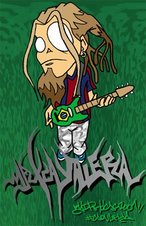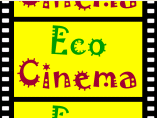
You will not be able to stay home, brother.
You will not be able to plug in, turn on and cop out.
You will not be able to lose yourself on skag and skip,
Skip out for beer during commercials,
Because the revolution will not be televised.
The revolution will not be televised.
The revolution will not be brought to you by Xerox
In 4 parts without commercial interruptions.
The revolution will not show you pictures of Nixon
blowing a bugle and leading a charge by John
Mitchell, General Abrams and Spiro Agnew to eat
hog maws confiscated from a Harlem sanctuary.
The revolution will not be televised.
The revolution will not be brought to you by the
Schaefer Award Theatre and will not star Natalie
Woods and Steve McQueen or Bullwinkle and Julia.
The revolution will not give your mouth sex appeal.
The revolution will not get rid of the nubs.
The revolution will not make you look five pounds
thinner, because the revolution will not be televised, Brother.
There will be no pictures of you and Willie May
pushing that shopping cart down the block on the dead run,
or trying to slide that color television into a stolen ambulance.
NBC will not be able predict the winner at 8:32
or report from 29 districts.
The revolution will not be televised.
There will be no pictures of pigs shooting down
brothers in the instant replay.
There will be no pictures of pigs shooting down
brothers in the instant replay.
There will be no pictures of Whitney Young being
run out of Harlem on a rail with a brand new process.
There will be no slow motion or still life of Roy
Wilkens strolling through Watts in a Red, Black and
Green liberation jumpsuit that he had been saving
For just the proper occasion.
Green Acres, The Beverly Hillbillies, and Hooterville
Junction will no longer be so damned relevant, and
women will not care if Dick finally gets down with
Jane on Search for Tomorrow because Black people
will be in the street looking for a brighter day.
The revolution will not be televised.
There will be no highlights on the eleven o'clock
news and no pictures of hairy armed women
liberationists and Jackie Onassis blowing her nose.
The theme song will not be written by Jim Webb,
Francis Scott Key, nor sung by Glen Campbell, Tom
Jones, Johnny Cash, Englebert Humperdink, or the Rare Earth.
The revolution will not be televised.
The revolution will not be right back after a message
about a white tornado, white lightning, or white people.
You will not have to worry about a dove in your
bedroom, a tiger in your tank, or the giant in your toilet bowl.
The revolution will not go better with Coke.
The revolution will not fight the germs that may cause bad breath.
The revolution will put you in the driver's seat.
The revolution will not be televised, will not be televised,
will not be televised, will not be televised.
The revolution will be no re-run brothers;
The revolution will be live.
This is a revolutionary poem/song, written in 1970, that we can consider it as proto-rap and it is referred especially to an Afro-American -probably militant- revolution against the racism that were suffered. But it can be interpreted and used for any socio-political call to action, either violent or non-violent.
No matter the fact that characters and situations mentioned in the song are contemporary of late sixties and maybe unknown today, its basic theme is diachronic and still an important reference by the activistic socio-political movements because of the strong truths that it deals with: The virtual and false glamorous reality that is propagated by the Mass Media and the pathetic effect to the audience which forces them to reduce their lives in consuming and watching TV. The singer warns us that the real revolution will come if we regain our lives and reclaim our true needs away from the imposing fake mass culture.
You can hear this song in youtube:
http://www.youtube.com/watch?v=uTCQSk2l8bc
21 September, 2007
The Revolution Will Not Be Televised by Gil Scott Heron, Album: Pieces of a man, 1971
Αναρτήθηκε από
candiru - stratis aigaiopelagitis
στις
12:55 PM
![]()
Ετικέτες 70s decade, Gil Scott-Heron, rap
Subscribe to:
Post Comments (Atom)




2 comments:
From wikipedia:
Gil Scott-Heron (born April 1, 1949) is an American poet and musician known primarily for his late 1960s and early 1970s work as a spoken word performer. He is associated with African American militant activism, and is best known for his poem and song "The Revolution Will Not Be Televised".
…
Scott-Heron began his recording career in 1970 with the LP Small Talk at 125th and Lenox….. The album's 15 tracks dealt with themes such as the superficiality of television and mass consumerism, the hypocrisy of some would-be Black revolutionaries, white middle-class ignorance of the difficulties faced by inner-city residents....
……
In 1979, Scott-Heron played at the No Nukes concerts at Madison Square Garden. The concerts were organized after the Three Mile Island accident by Musicians United for Safe Energy to protest the use of nuclear energy. Scott-Heron's song We Almost Lost Detroit, about a previous accident at a nuclear facility, was included in the No Nukes album of concert highlights.
……
Scott-Heron was a frequent critic of President Ronald Reagan and his conservative policies:
"The idea concerns the fact that this country wants nostalgia. They want to go back as far as they can -- even if it's only as far as last week. Not to face now or tomorrow, but to face backwards. And yesterday was the day of our cinema heroes riding to the rescue at the last possible moment. The day of the man in the white hat or the man on the white horse - or the man who always came to save America at the last moment -- someone always came to save America at the last moment -- especially in 'B' movies. And when America found itself having a hard time facing the future, they looked for people like John Wayne. But since John Wayne was no longer available, they settled for Ronald Reagan -- and it has placed us in a situation that we can only look at -- like a 'B' movie." (Gil Scott-Heron, "'B' Movie")
…
Scott-Heron is known in many circles as "the godfather of rap"[1][2] and is widely considered to be one of the genre's founding fathers. Given the political consciousness that lies at the foundation of his work, he can also be called a founder of political rap. Message to the Messengers was a plea for the new generation of rappers to speak for change rather than perpetuate the current social situation, and to be more articulate and artistic:
"There's a big difference between putting words over some music, and blending those same words into the music. There's not a lot of humour. They use a lot of slang and colloquialisms, and you don't really see inside the person. Instead, you just get a lot of posturing."
Pretty effective info, thanks so much for this article.
Post a Comment